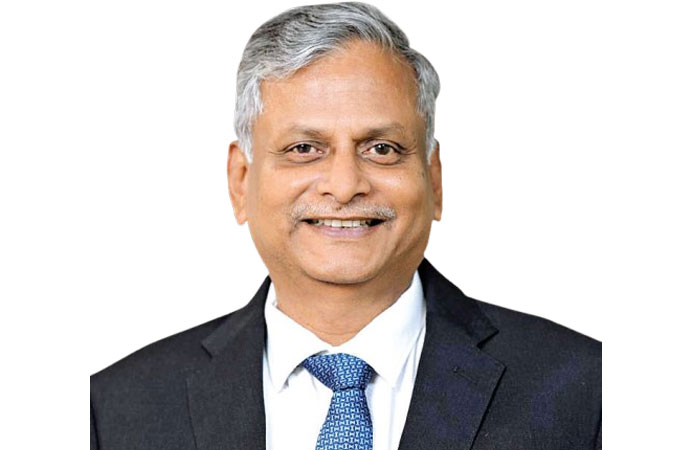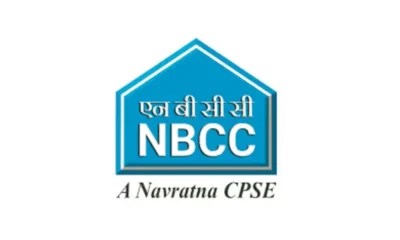Concrete
Life skills for the new age – 2020s and beyond
Published
5 years agoon
By
admin
We all live through three distinct phases in our life: (a) education phase (b) work phase and (c) retirement phase. The phases are very different, one from the other, though there may be some overlaps in terms of certain activities. We spontaneously pick up, as it were, certain skills in each of the phases, but it is advisable that we put in conscious efforts towards acquiring the right skills, which could assure us a higher degree of success.
In these few pages, I am sharing largely my personal experiences, but I have also included insights gained from my friends and colleagues whom I regard highly for their maturity and professional competence.
Education phase
Without exception, all parents strive to provide the best possible education to their children according to their means. However, the quality of education the child receives is heavily dependent on the nature and the standing of the school where the child could finally secure admission. Most parents opt to get their children admitted to a school close to their residence or in one which assures transport arrangements.
A few parents may decide to send their children, generally their grownup children, to a boarding school. A boarding school is certainly very conducive to the overall development of the child, but everyone knows boarding schools cost a lot. Only those parents, who can afford to foot the bill and who do not mind their children living away from them, exercise this option. Once through with the school, college education comes next. Choice of the field of study is the most critical issue at this stage. Very many factors influence this decision, the most important being the score card, the actual marks obtained in the school finals. Given the intense competition for the few seats available for a particular specialisation in any reputed college, the child?? performance in the school will be the most decisive factor. In addition, parents??preferences and the counsel of vocational guides and well-wishers, will also play a part.
Life at college, free of the school uniform, ushers in a period of freedom. Opportunities for abuse are very high. Bunking classes is always a major temptation to the students. It seems to give them a sense of power. However, during this period, the idea of what one wants to achieve in life begins to take shape, especially among the more devoted of the student community. While at college, one needs to concentrate on classroom learning. This must be supplemented by study at home and regular visits to the library. No one can broaden one?? horizon or do well academically without the study of the recommended books and journals.
At the same time, one needs also to develop an interest in extra-curricular activities such as sports, drama, elocution, debating, music, dance, and singing. Academic excellence alone will not suffice for all-round development. Participation in sports and games can contribute immensely to preparing oneself for the next phase in life, the Work Phase. Be that as it may, academic learning should be the prime focus at this stage. In college, students in particular course will be of varying economic backgrounds. Accordingly, their ambitions and dreams, and their focus and their lifestyles are likely to be different. Difficult as it may be children need to be helped to integrate this truth into their life. We do not choose our parents and there is no reason to feel apologetic if one happens to come from a poorer section of the society, economically speaking. College students should be made aware of the laws of the land with regard to the consumption of drugs. They must be forewarned by teachers and parents about the dangers and pernicious effects of drug abuse. Health is ruined. Concentration is lost. Career is endangered. Most of all a drug addict finds himself on the wrong side of the law with its attendant consequences. While at college, students should be singularly focused on achieving the goals they have set for themselves. College education is the first step in obtaining a Diploma or a Degree. It also spells the start of acquiring domain knowledge in a particular field. Development of social skills also occurs during this period.
Domain knowledge must be amply supported with knowledge of networking and technology as these are regarded as essential for success in the future. All these skills should ideally lead to developing a high level of self-confidence, feeling certain about what one wants to do in life, and the ability to stay competitive in this ??an-eats-dog world?? Successful completion of a Diploma or a Degree course paves the way for the student either to pursue higher education or to seek gainful employment of some kind and, in some cases, even to be self-employed.
By way of summary, we can say that after college education, the skill-sets required of the New Age personnel will revolve around the following areas:
a) Ease of using digital tools.
b) Focus, a high level of goal-orientation.
c) Self-confidence coupled with the realisation that organisations are hierarchical, and one will have to work under a boss.
d) While at college competing with fellow students was acceptable, but in the workplace collaboration and teamwork are more desirable. They are also important for one?? overall success.
e) Organisations function based on rules and regulations, and therefore strict adherence to the rules is expected of the new entrants to the corporate life.
Gradually all the life skills are becoming gender neutral. Hence, everyone, regardless of the gender, must acquire household-related skills as well such as cooking and housekeeping. These skills are better developed at a young age and so the role of parents in ensuring that their wards are on track in acquiring these skills cannot be over-emphasised.

Work phase
Presently there is a serious slowdown in the economy of the country owing primarily to the outbreak of Covid -19 pandemic. This is a global phenomenon. It would take a while to return to the pre-Covid19 situation. The job market in India is at present under unprecedented stress, more so for the fresh graduates in any field other than medicine and information technology (IT). Limited jobs are available to the new entrants in the job market.
Let us not forget that a high tide always follows a low tide. We have to keep our hopes alive as jobseekers. This will also apply to the enterprises in the country. Enterprises that had earlier faced global competition are seeing a big shift. The recent protectionist policies increasingly adopted by countries across the world, including India, are bound to aid the local enterprises to some extent. Increased use of electronic media by businesses in different spheres has also come as a boon. As a result, enterprises related to Information Technology (IT) and Information Technology Enabled Services (ITES) have benefitted immensely during this pandemic.
Job prospects have considerably improved in these sectors. Also, lectures and classes, both at schools and colleges, are being held in a virtual fashion. This is likely to become the new normal, especially when it comes to imparting distance education. An academic qualification, even just a Diploma or a Degree, may serve as a passport for entry into the world of work. However, it does not guarantee a steady growth in career thereafter. Continuous learning and upgradation of skills are a must for any meaningful growth in one?? career. Money is not to be made as the be-all and the end-all of life or the sole purpose of our work.
There are so many other good reasons why we perform at our best: service to the world, sense of personal satisfaction, and growth in competence, to mention a few. Let us bear in mind that nobody ever has died of hard work, but several have perished because of laziness. In the world of work, it is essential that one keeps oneself physically fit, mentally alert, and emotionally stable, despite the pressures at the workplace and in one?? personal life. While in the world of work, it is essential that one maintains cordial relationships with one?? spouse and children, one?? parents and siblings, in-laws and relatives, friends, and associates, as they are said to serve as the emotional anchors to our lives. They do help an individual to navigate through turbulent times successfully. One?? school and college batchmates can also contribute in a big way to one?? emotional wellbeing even though they will have their individual paths to follow and their own personal destinies to fulfil.
For the next several years, because of the Covid-19 pandemic, many persons will face a difficult situation in finding jobs and in retaining them. Hence, individuals must consciously maintain a positive and optimistic attitude as this alone can help deal with the current challenges in life. Some young people, disappointed at not being promoted or not being rewarded adequately, quit their jobs in haste without another job or any other alternative in hand. This is imprudent, to say the least. A candid assessment of one?? capabilities and performance levels and careful scrutiny of one?? shortcomings and weaknesses would throw up useful data for charting out a required improvement path, which should eventually lead to the desired levels of success. We do not expect the workplace to be some sort of a paradise. There are bound to be problems and challenges of all kinds, some of which may be very undesirable. Stress and strain in a job are also inevitable.
The remedy lies in getting engaged in absorbing hobbies and pursuing other interests such as social work or games. This will help to destress oneself and to find meaning in some other areas of life. The satisfaction derived this way can compensate for the unhappiness being felt at the work front. Another important suggestion would be about developing a love for and pride in the organisation we work for. There is more than adequate evidence to show that a positive attitude towards one?? organisation has contributed in a significant way to a person?? career growth and overall success in life. As far as the work phase is concerned, there are five areas to focus on: home, self, work, profession, and community. This will call for apportioning the available time appropriately for all the five aspects of one?? life. Success in this regard results in enhancing the ability of the person to make a real difference in the world. For achieving success in the world of work, the following are necessary:
a) A clear vision, knowing what one desires to achieve in life.
b) Discipline of completing tasks in time, with quality and excellence, sparing no effort in doing one is very best.
c) An iron will, determined to achieve the desired goal.
d) Building acceptability with one?? boss, peers, and subordinates, which is the outcome of having built adequate trust in the relationships.
e) Keeping abreast of the changes in technology and the new developments in one?? field of work.
f) Lastly, one?? share of luck. After all, the goddess of luck does play a big part in our fortunes in life.
Here is a list of skills required of a person in the World of Work in the 2020s and beyond:
1. Passion for one?? work
2. High work ethics
3. Entrepreneurial spirit
4. Critical thinking
5. Creativity
6. Interpersonal skills
7. Empathy
8. Ability to work with diverse people
9. Time Management – keeping promises and honouring commitments
10. Ability to deal with uncertainty
11. Adaptability ??bility to navigate in turbulent waters
12. Willingness to share resources and work as a team
13. Continuous learning
14. Managing change
15. Knowledge of the use of digital tools.

Retirement phase
After the work phase, an individual retires from the organisation and moves into the retirement phase. The superannuation age in most enterprises Is 58 or 60 years. Some retire prematurely before the age of superannuation either to pursue some other interests of their own or just to rest. Only those who are financially sound can choose to retire early. Unless one is employed with the government, job security is no more a reality in today?? world. Enterprises keep restructuring, merging, and downsizing all the time so much so that one is made to feel permanently as a temporary hand till one retires. Self-employed persons have the luxury of prolonging their work-life well into their 70??. When they finally decide to hang their boots, they move into the retirement phase of their life. The job market in India is not all that rosy at present and those employed have to face innumerable challenges to stay afloat in the corporate waters. It is undoubtedly a case of the ??urvival of the fittest?? Therefore, those employed should be making a saving regularly for the rainy days ahead. Getting trapped in the EMI (Equated Monthly Instalment) culture, which is all too popular today, is very undesirable except for purposes such as purchase of a house.
While in the world of work, one also needs to develop alternative sources of income, should one be unfortunate enough to lose the job for some reason or other. Sudden terminations are not uncommon in today?? organisations. One must be prepared for any such eventuality by consciously developing an alternative source of livelihood. All this would serve one well during the retirement phase. For leading a meaningful and peaceful life during the retirement phase, one has to attend to the following matters:
a) Own dwelling place.
b) Maintaining good health and remaining fit physically, mentally, and emotionally, by regular exercises including yoga.
c) Healthy and nutritious diet.
d) A healthy bank account. Adequate funds for oneself and for one?? spouse. Whoever survives should also be able to live on comfortably without having to depend on children or anyone else.
e) Meaningful occupations. Professional pursuits and Hobbies of some kind. Both will do wonders to a person?? life.
Conclusion
In life we all go through the three phases we have talked about, though our experiences may vary owing to various factors, such as family status, educational levels, nature of the profession, and the personality of the individual.
We have highlighted some of the essential skills needed to be effective and successful in each phase ??during the 2020s and beyond. This is not an exhaustive list but does cover the critical aspects to focus on to ensure a person?? smooth passage through the three phases of life. It is important to nurture affection and love for one?? school and college and develop feelings of gratitude and respect for the teachers, but for whom we could not have moved through the education phase successfully. We also need to be grateful to all the organisations we have worked for and should never speak ill of any of our past employers. Our work phase is largely what our life is made of. If this is how we carry ourselves during the first two phases of our life, the retirement phase will certainly prove to be a period of great joy and peace, as we will be able to look back at the years gone by and our various accomplishments with great satisfaction. Our life will certainly go down as a meaningful life.
ABOUT THE AUTHOR:
Dr Rajen Mehrotra is Past President of Industrial Relations Institute of India (IRII, Former Senior Employers??Specialist for South Asian Region with International Labor Organization (ILO) and Former Corporate Head of HR with ACC and Former Corporate Head of Manufacturing and HR with Novartis India. E-Mail: rajenmehrotra@gmail.com
The article is based on a talk delivered by the author in a Webinar on ??ssential Skills For Tomorrow – 2020+??organised by Mind Power on September 26, 2020 for students, executives and retired professionals. Published in October 2020 issue of Current Labour Reports.
You may like
Concrete
Refractory demands in our kiln have changed
Published
9 minutes agoon
February 20, 2026By
admin
Radha Singh, Senior Manager (P&Q), Shree Digvijay Cement, points out why performance, predictability and life-cycle value now matter more than routine replacement in cement kilns.
As Indian cement plants push for higher throughput, increased alternative fuel usage and tighter shutdown cycles, refractory performance in kilns and pyro-processing systems is under growing pressure. In this interview, Radha Singh, Senior Manager (P&Q), Shree Digvijay Cement, shares how refractory demands have evolved on the ground and how smarter digital monitoring is improving kiln stability, uptime and clinker quality.
How have refractory demands changed in your kiln and pyro-processing line over the last five years?
Over the last five years, refractory demands in our kiln and pyro line have changed. Earlier, the focus was mostly on standard grades and routine shutdown-based replacement. But now, because of higher production loads, more alternative fuels and raw materials (AFR) usage and greater temperature variation, the expectation from refractory has increased.
In our own case, the current kiln refractory has already completed around 1.5 years, which itself shows how much more we now rely on materials that can handle thermal shock, alkali attack and coating fluctuations. We have moved towards more stable, high-performance linings so that we don’t have to enter the kiln frequently for repairs.
Overall, the shift has been from just ‘installation and run’ to selecting refractories that give longer life, better coating behaviour and more predictable performance under tougher operating conditions.
What are the biggest refractory challenges in the preheater, calciner and cooler zones?
• Preheater: Coating instability, chloride/sulphur cycles and brick erosion.
• Calciner: AFR firing, thermal shock and alkali infiltration.
• Cooler: Severe abrasion, red-river formation and mechanical stress on linings.
Overall, the biggest challenge is maintaining lining stability under highly variable operating conditions.
How do you evaluate and select refractory partners for long-term performance?
In real plant conditions, we don’t select a refractory partner just by looking at price. First, we see their past performance in similar kilns and whether their material has actually survived our operating conditions. We also check how strong their technical support is during shutdowns, because installation quality matters as much as the material itself.
Another key point is how quickly they respond during breakdowns or hot spots. A good partner should be available on short notice. We also look at their failure analysis capability, whether they can explain why a lining failed and suggest improvements.
On top of this, we review the life they delivered in the last few campaigns, their supply reliability and their willingness to offer plant-specific custom solutions instead of generic grades. Only a partner who supports us throughout the life cycle, which includes selection, installation, monitoring and post-failure analysis, fits our long-term requirement.
Can you share a recent example where better refractory selection improved uptime or clinker quality?
Recently, we upgraded to a high-abrasion basic brick at the kiln outlet. Earlier we had frequent chipping and coating loss. With the new lining, thermal stability improved and the coating became much more stable. As a result, our shutdown interval increased and clinker quality remained more consistent. It had a direct impact on our uptime.
How is increased AFR use affecting refractory behaviour?
Increased AFR use is definitely putting more stress on the refractory. The biggest issue we see daily is the rise in chlorine, alkalis and volatiles, which directly attack the lining, especially in the calciner and kiln inlet. AFR firing is also not as stable as conventional fuel, so we face frequent temperature fluctuations, which cause more thermal shock and small cracks in the lining.
Another real problem is coating instability. Some days the coating builds too fast, other days it suddenly drops, and both conditions impact refractory life. We also notice more dust circulation and buildup inside the calciner whenever the AFR mix changes, which again increases erosion.
Because of these practical issues, we have started relying more on alkali-resistant, low-porosity and better thermal shock–resistant materials to handle the additional stress coming from AFR.
What role does digital monitoring or thermal profiling play in your refractory strategy?
Digital tools like kiln shell scanners, IR imaging and thermal profiling help us detect weakening areas much earlier. This reduces unplanned shutdowns, helps identify hotspots accurately and allows us to replace only the critical sections. Overall, our maintenance has shifted from reactive to predictive, improving lining life significantly.
How do you balance cost, durability and installation speed during refractory shutdowns?
We focus on three points:
• Material quality that suits our thermal profile and chemistry.
• Installation speed, in fast turnarounds, we prefer monolithic.
• Life-cycle cost—the cheapest material is not the most economical. We look at durability, future downtime and total cost of ownership.
This balance ensures reliable performance without unnecessary expenditure.
What refractory or pyro-processing innovations could transform Indian cement operations?
Some promising developments include:
• High-performance, low-porosity and nano-bonded refractories
• Precast modular linings to drastically reduce shutdown time
• AI-driven kiln thermal analytics
• Advanced coating management solutions
• More AFR-compatible refractory mixes
These innovations can significantly improve kiln stability, efficiency and maintenance planning across the industry.
Concrete
Digital supply chain visibility is critical
Published
20 minutes agoon
February 20, 2026By
admin
MSR Kali Prasad, Chief Digital and Information Officer, Shree Cement, discusses how data, discipline and scale are turning Industry 4.0 into everyday business reality.
Over the past five years, digitalisation in Indian cement manufacturing has moved decisively beyond experimentation. Today, it is a strategic lever for cost control, operational resilience and sustainability. In this interview, MSR Kali Prasad, Chief Digital and Information Officer, Shree Cement, explains how integrated digital foundations, advanced analytics and real-time visibility are helping deliver measurable business outcomes.
How has digitalisation moved from pilot projects to core strategy in Indian cement manufacturing over the past five years?
Digitalisation in Indian cement has evolved from isolated pilot initiatives into a core business strategy because outcomes are now measurable, repeatable and scalable. The key shift has been the move away from standalone solutions toward an integrated digital foundation built on standardised processes, governed data and enterprise platforms that can be deployed consistently across plants and functions.
At Shree Cement, this transition has been very pragmatic. The early phase focused on visibility through dashboards, reporting, and digitisation of critical workflows. Over time, this has progressed into enterprise-level analytics and decision support across manufacturing and the supply chain,
with clear outcomes in cost optimisation, margin protection and revenue improvement through enhanced customer experience.
Equally important, digital is no longer the responsibility of a single function. It is embedded into day-to-day operations across planning, production, maintenance, despatch and customer servicing, supported by enterprise systems, Industrial Internet of Things (IIoT) data platforms, and a structured approach to change management.
Which digital interventions are delivering the highest ROI across mining, production and logistics today?
In a capital- and cost-intensive sector like cement, the highest returns come from digital interventions that directly reduce unit costs or unlock latent capacity without significant capex.
Supply chain and planning (advanced analytics): Tools for demand forecasting, S&OP, network optimisation and scheduling deliver strong returns by lowering logistics costs, improving service levels, and aligning production with demand in a fragmented and regionally diverse market.
Mining (fleet and productivity analytics): Data-led mine planning, fleet analytics, despatch discipline, and idle-time reduction improve fuel efficiency and equipment utilisation, generating meaningful savings in a cost-heavy operation.
Manufacturing (APC and process analytics): Advanced Process Control, mill optimisation, and variability reduction improve thermal and electrical efficiency, stabilise quality and reduce rework and unplanned stoppages.
Customer experience and revenue enablement (digital platforms): Dealer and retailer apps, order visibility and digitally enabled technical services improve ease of doing business and responsiveness. We are also empowering channel partners with transparent, real-time information on schemes, including eligibility, utilisation status and actionable recommendations, which improves channel satisfaction and market execution while supporting revenue growth.
Overall, while Artificial Intelligence (AI) and IIoT are powerful enablers, it is advanced analytics anchored in strong processes that typically delivers the fastest and most reliable ROI.
How is real-time data helping plants shift from reactive maintenance to predictive and prescriptive operations?
Real-time and near real-time data is driving a more proactive and disciplined maintenance culture, beginning with visibility and progressively moving toward prediction and prescription.
At Shree Cement, we have implemented a robust SAP Plant Maintenance framework to standardise maintenance workflows. This is complemented by IIoT-driven condition monitoring, ensuring consistent capture of equipment health indicators such as vibration, temperature, load, operating patterns and alarms.
Real-time visibility enables early detection of abnormal conditions, allowing teams to intervene before failures occur. As data quality improves and failure histories become structured, predictive models can anticipate likely failure modes and recommend timely interventions, improving MTBF and reducing downtime. Over time, these insights will evolve into prescriptive actions, including spares readiness, maintenance scheduling, and operating parameter adjustments, enabling reliability optimisation with minimal disruption.
A critical success factor is adoption. Predictive insights deliver value only when they are embedded into daily workflows, roles and accountability structures. Without this, they remain insights without action.
In a cost-sensitive market like India, how do cement companies balance digital investment with price competitiveness?
In India’s intensely competitive cement market, digital investments must be tightly linked to tangible business outcomes, particularly cost reduction, service improvement, and faster decision-making.
This balance is achieved by prioritising high-impact use cases such as planning efficiency, logistics optimisation, asset reliability, and process stability, all of which typically deliver quick payback. Equally important is building scalable and governed digital foundations that reduce the marginal cost of rolling out new use cases across plants.
Digitally enabled order management, live despatch visibility, and channel partner platforms also improve customer centricity while controlling cost-to-serve, allowing service levels to improve without proportionate increases in headcount or overheads.
In essence, the most effective digital investments do not add cost. They protect margins by reducing variability, improving planning accuracy, and strengthening execution discipline.
How is digitalisation enabling measurable reductions in energy consumption, emissions, and overall carbon footprint?
Digitalisation plays a pivotal role in improving energy efficiency, reducing emissions and lowering overall carbon intensity.
Real-time monitoring and analytics enable near real-time tracking of energy consumption and critical operating parameters, allowing inefficiencies to be identified quickly and corrective actions to be implemented. Centralised data consolidation across plants enables benchmarking, accelerates best-practice adoption, and drives consistent improvements in energy performance.
Improved asset reliability through predictive maintenance reduces unplanned downtime and process instability, directly lowering energy losses. Digital platforms also support more effective planning and control of renewable energy sources and waste heat recovery systems, reducing dependence on fossil fuels.
Most importantly, digitalisation enables sustainability progress to be tracked with greater accuracy and consistency, supporting long-term ESG commitments.
What role does digital supply chain visibility play in managing demand volatility and regional market dynamics in India?
Digital supply chain visibility is critical in India, where demand is highly regional, seasonality is pronounced, and logistics constraints can shift rapidly.
At Shree Cement, planning operates across multiple horizons. Annual planning focuses on capacity, network footprint and medium-term demand. Monthly S&OP aligns demand, production and logistics, while daily scheduling drives execution-level decisions on despatch, sourcing and prioritisation.
As digital maturity increases, this structure is being augmented by central command-and-control capabilities that manage exceptions such as plant constraints, demand spikes, route disruptions and order prioritisation. Planning is also shifting from aggregated averages to granular, cost-to-serve and exception-based decision-making, improving responsiveness, lowering logistics costs and strengthening service reliability.
How prepared is the current workforce for Industry 4.0, and what reskilling strategies are proving most effective?
Workforce preparedness for Industry 4.0 is improving, though the primary challenge lies in scaling capabilities consistently across diverse roles.
The most effective approach is to define capability requirements by role and tailor enablement accordingly. Senior leadership focuses on digital literacy for governance, investment prioritisation, and value tracking. Middle management is enabled to use analytics for execution discipline and adoption. Frontline sales and service teams benefit from
mobile-first tools and KPI-driven workflows, while shop-floor and plant teams focus on data-driven operations, APC usage, maintenance discipline, safety and quality routines.
Personalised, role-based learning paths, supported by on-ground champions and a clear articulation of practical benefits, drive adoption far more effectively than generic training programmes.
Which emerging digital technologies will fundamentally reshape cement manufacturing in the next decade?
AI and GenAI are expected to have the most significant impact, particularly when combined with connected operations and disciplined processes.
Key technologies likely to reshape the sector include GenAI and agentic AI for faster root-cause analysis, knowledge access, and standardisation of best practices; industrial foundation models that learn patterns across large sensor datasets; digital twins that allow simulation of process changes before implementation; and increasingly autonomous control systems that integrate sensors, AI, and APC to maintain stability with minimal manual intervention.
Over time, this will enable more centralised monitoring and management of plant operations, supported by strong processes, training and capability-building.
Concrete
Redefining Efficiency with Digitalisation
Published
27 minutes agoon
February 20, 2026By
admin
Professor Procyon Mukherjee discusses how as the cement industry accelerates its shift towards digitalisation, data-driven technologies are becoming the mainstay of sustainability and control across the value chain.
The cement industry, long perceived as traditional and resistant to change, is undergoing a profound transformation driven by digital technologies. As global infrastructure demand grows alongside increasing pressure to decarbonise and improve productivity, cement manufacturers are adopting data-centric tools to enhance performance across the value chain. Nowhere is this shift more impactful than in grinding, which is the energy-intensive final stage of cement production, and in the materials that make grinding more efficient: grinding media and grinding aids.
The imperative for digitalisation
Cement production accounts for roughly 7 per cent to 8 per cent of global CO2 emissions, largely due to the energy intensity of clinker production and grinding processes. Digital solutions, such as AI-driven process controls and digital twins, are helping plants improve stability, cut fuel use and reduce emissions while maintaining consistent product quality. In one deployment alongside ABB’s process controls at a Heidelberg plant in Czechia, AI tools cut fuel use by 4 per cent and emissions by 2 per cent, while also improving operational stability.
Digitalisation in cement manufacturing encompasses a suite of technologies, broadly termed as Industrial Internet of Things (IIoT), AI and machine learning, predictive analytics, cloud-based platforms, advanced process control and digital twins, each playing a role in optimising various stages of production from quarrying to despatch.
Grinding: The crucible of efficiency and cost
Of all the stages in cement production, grinding is among the most energy-intensive, historically consuming large amounts of electricity and representing a significant portion of plant operating costs. As a result, optimising grinding operations has become central to digital transformation strategies.
Modern digital systems are transforming grinding mills from mechanical workhorses into intelligent, interconnected assets. Sensors throughout the mill measure parameters such as mill load, vibration, mill speed, particle size distribution, and power consumption. This real-time data, fed into machine learning and advanced process control (APC) systems, can dynamically adjust operating conditions to maintain optimal throughput and energy usage.
For example, advanced grinding systems now predict inefficient conditions, such as impending mill overload, by continuously analysing acoustic and vibration signatures. The system can then proactively adjust clinker feed rates and grinding media distribution to sustain optimal conditions, reducing energy consumption and improving consistency.
Digital twins: Seeing grinding in the virtual world
One of the most transformative digital tools applied in cement grinding is the digital twin, which a real-time virtual replica of physical equipment and processes. By integrating sensor data and
process models, digital twins enable engineers to simulate process variations and run ‘what-if’
scenarios without disrupting actual production. These simulations support decisions on variables such as grinding media charge, mill speed and classifier settings, allowing optimisation of energy use and product fineness.
Digital twins have been used to optimise kilns and grinding circuits in plants worldwide, reducing unplanned downtime and allowing predictive maintenance to extend the life of expensive grinding assets.
Grinding media and grinding aids in a digital era
While digital technologies improve control and prediction, materials science innovations in grinding media and grinding aids have become equally crucial for achieving performance gains.
Grinding media, which comprise the balls or cylinders inside mills, directly influence the efficiency of clinker comminution. Traditionally composed of high-chrome cast iron or forged steel, grinding media account for nearly a quarter of global grinding media consumption by application, with efficiency improvements translating directly to lower energy intensity.
Recent advancements include ceramic and hybrid media that combine hardness and toughness to reduce wear and energy losses. For example, manufacturers such as Sanxin New Materials in China and Tosoh Corporation in Japan have developed sub-nano and zirconia media with exceptional wear resistance. Other innovations include smart media embedded with sensors to monitor wear, temperature, and impact forces in real time, enabling predictive maintenance and optimal media replacement scheduling. These digitally-enabled media solutions can increase grinding efficiency by as much as 15 per cent.
Complementing grinding media are grinding aids, which are chemical additives that improve mill throughput and reduce energy consumption by altering the surface properties of particles, trapping air, and preventing re-agglomeration. Technology leaders like SIKA AG and GCP Applied Technologies have invested in tailored grinding aids compatible with AI-driven dosing platforms that automatically adjust additive concentrations based on real-time mill conditions. Trials in South America reported throughput improvements nearing 19 per cent when integrating such digital assistive dosing with process control systems.
The integration of grinding media data and digital dosing of grinding aids moves the mill closer to a self-optimising system, where AI not only predicts media wear or energy losses but prescribes optimal interventions through automated dosing and operational adjustments.
Global case studies in digital adoption
Several cement companies around the world exemplify digital transformation in practice.
Heidelberg Materials has deployed digital twin technologies across global plants, achieving up to 15 per cent increases in production efficiency and 20 per cent reductions in energy consumption by leveraging real-time analytics and predictive algorithms.
Holcim’s Siggenthal plant in Switzerland piloted AI controllers that autonomously adjusted kiln operations, boosting throughput while reducing specific energy consumption and emissions.
Cemex, through its AI and predictive maintenance initiatives, improved kiln availability and reduced maintenance costs by predicting failures before they occurred. Global efforts also include AI process optimisation initiatives to reduce energy consumption and environmental impact.
Challenges and the road ahead
Despite these advances, digitalisation in cement grinding faces challenges. Legacy equipment may lack sensor readiness, requiring retrofits and edge-cloud connectivity upgrades. Data governance and integration across plants and systems remains a barrier for many mid-tier producers. Yet, digital transformation statistics show momentum: more than half of cement companies have implemented IoT sensors for equipment monitoring, and digital twin adoption is growing rapidly as part of broader Industry 4.0 strategies.
Furthermore, as digital systems mature, they increasingly support sustainability goals: reduced energy use, optimised media consumption and lower greenhouse gas emissions. By embedding intelligence into grinding circuits and material inputs like grinding aids, cement manufacturers can strike a balance between efficiency and environmental stewardship.
Conclusion
Digitalisation is not merely an add-on to cement manufacturing. It is reshaping the competitive and sustainability landscape of an industry often perceived as inertia-bound. With grinding representing a nexus of energy intensity and cost, digital technologies from sensor networks and predictive analytics to digital twins offer new levers of control. When paired with innovations in grinding media and grinding aids, particularly those with embedded digital capabilities, plants can achieve unprecedented gains in efficiency, predictability and performance.
For global cement producers aiming to reduce costs and carbon footprints simultaneously, the future belongs to those who harness digital intelligence not just to monitor operations, but to optimise and evolve them continuously.
About the author:
Professor Procyon Mukherjee, ex-CPO Lafarge-Holcim India, ex-President Hindalco, ex-VP Supply Chain Novelis Europe, has been an industry leader in logistics, procurement, operations and supply chain management. His career spans 38 years starting from Philips, Alcan Inc (Indian Aluminum Company), Hindalco, Novelis and Holcim. He authored the book, ‘The Search for Value in Supply Chains’. He serves now as Visiting Professor in SP Jain Global, SIOM and as the Adjunct Professor at SBUP. He advises leading Global Firms including Consulting firms on SCM and Industrial Leadership and is a subject matter expert in aluminum and cement. An Alumnus of IIM Calcutta and Jadavpur University, he has completed the LH Senior Leadership Programme at IVEY Academy at Western University, Canada.

Refractory demands in our kiln have changed

Digital supply chain visibility is critical

Redefining Efficiency with Digitalisation

Cement Additives for Improved Grinding Efficiency

Digital Pathways for Sustainable Manufacturing

Refractory demands in our kiln have changed

Digital supply chain visibility is critical

Redefining Efficiency with Digitalisation

Cement Additives for Improved Grinding Efficiency
















